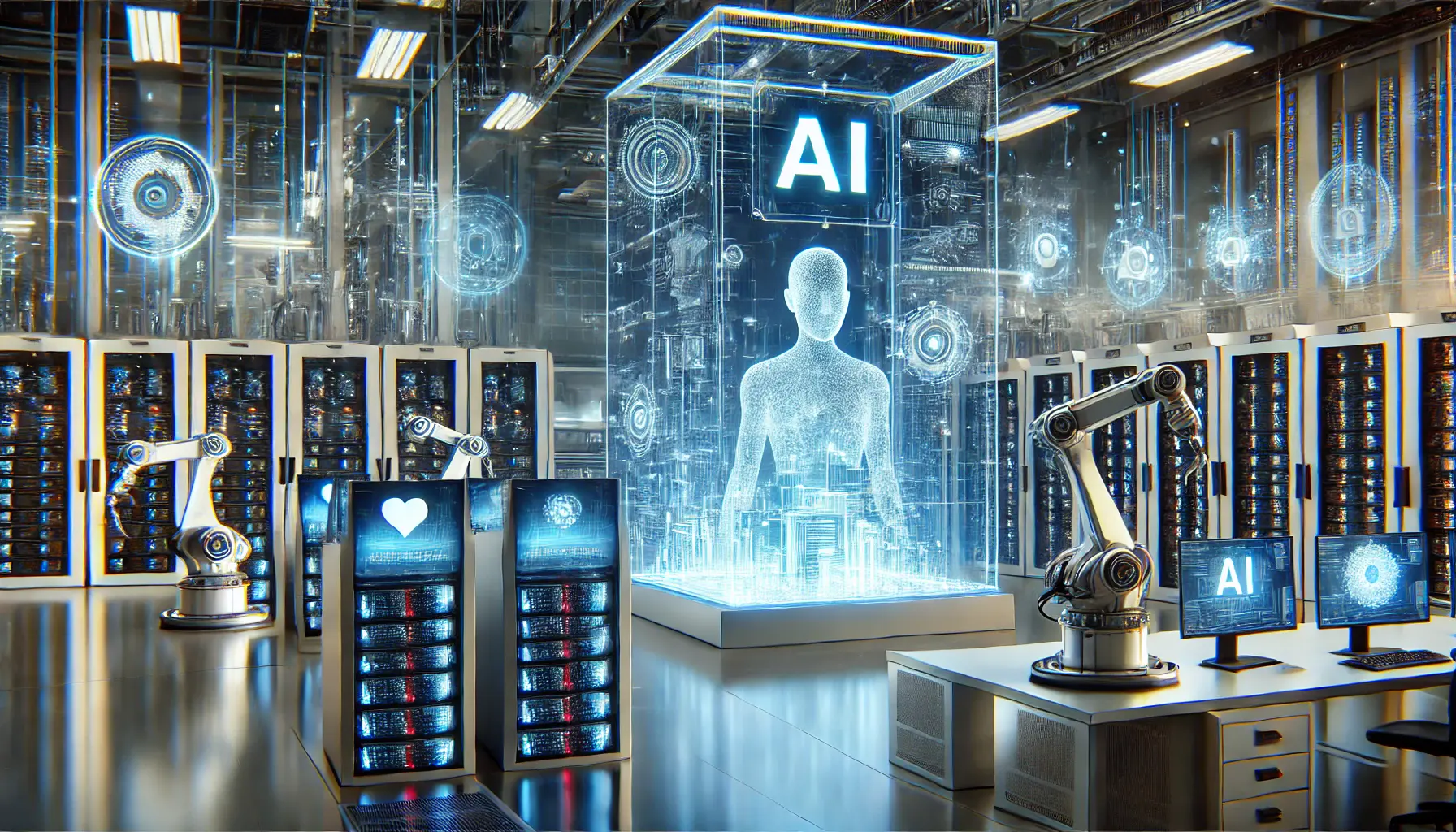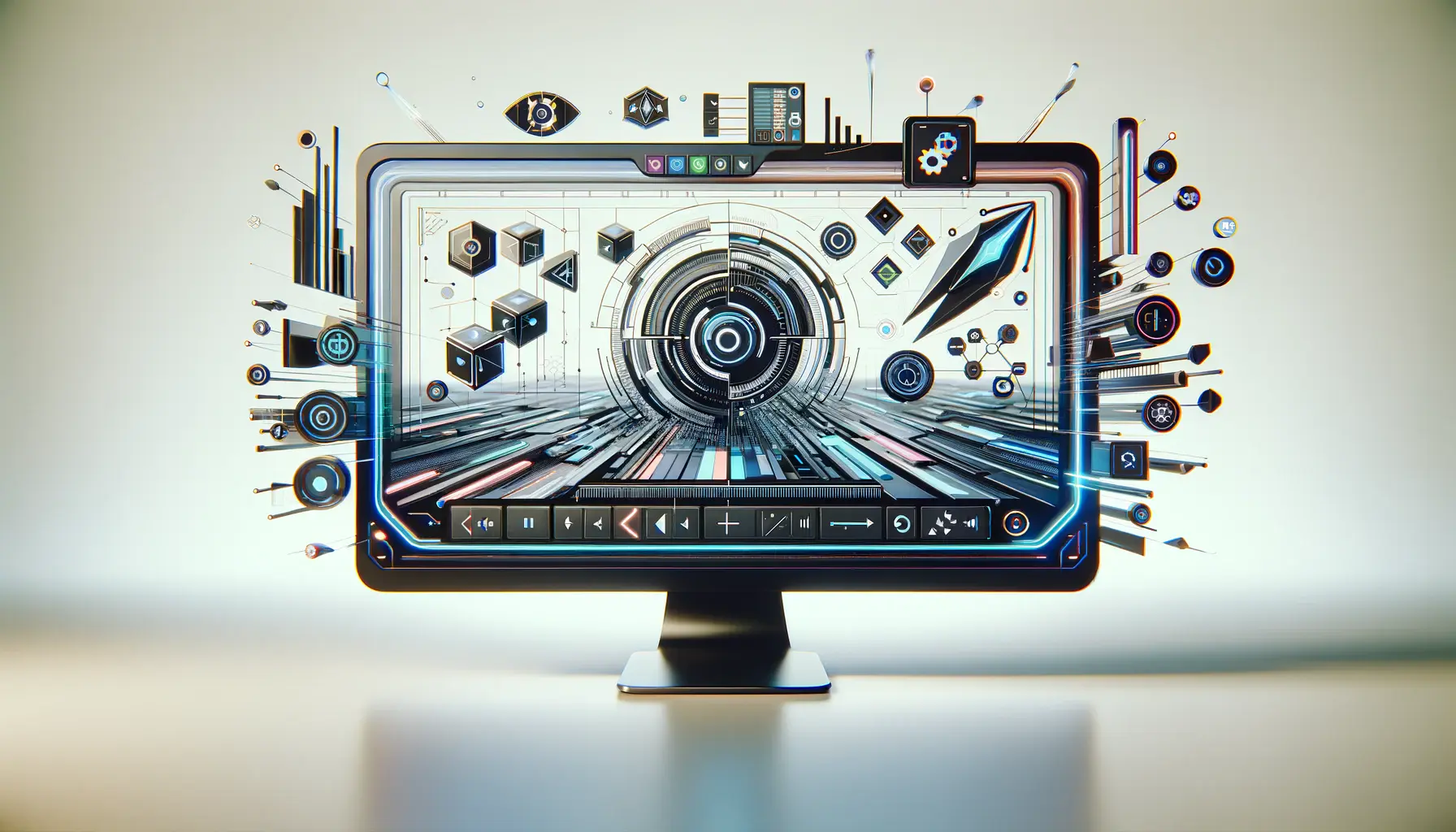In the rapidly evolving landscape of artificial intelligence (AI), the introduction of OpenAI’s Sora has marked a significant milestone in the realm of AI video creation.
This innovative tool, capable of transforming text prompts into photorealistic videos, has not only captivated the imagination of creators across the globe but also raised important questions about privacy and data protection in the digital age.
As we delve into the capabilities and implications of Sora, it becomes crucial to understand how it aligns with the ongoing conversation about user privacy and the ethical use of AI technologies.
The advent of Sora by OpenAI represents a leap forward in generative AI, offering unprecedented opportunities for creativity and content generation.
However, with great power comes great responsibility, especially when it comes to handling sensitive information and ensuring the privacy of users.
In this context, the focus on privacy is not just a matter of compliance with regulations but a cornerstone of trust between AI developers and the end-users.
As we explore the functionalities and potential of Sora, the emphasis on safeguarding personal data emerges as a key concern, highlighting the need for robust privacy measures in AI video creation.
- Understanding Sora and Its Impact on Privacy
- Strategies for Enhancing Privacy in AI Video Creation
- Privacy by Design in AI Video Creation
- Regulatory Compliance and AI Video Creation
- Enhancing User Trust Through Privacy Practices
- Future Trends in Privacy and AI Video Creation
- Collaboration Between Stakeholders in AI Privacy
- Securing the Future of AI Video Creation with Privacy at the Forefront
- Sora and Privacy in AI Video Creation: FAQs
Understanding Sora and Its Impact on Privacy
Sora, OpenAI’s groundbreaking AI video generator, has the ability to produce videos that are so lifelike they blur the lines between reality and AI-generated content.
This capability, while impressive, underscores the importance of privacy and data security.
The technology behind Sora involves complex algorithms and vast datasets, including potentially sensitive information that users may input as prompts.
The question then arises: how does Sora handle this data, and what measures are in place to protect user privacy?
At its core, Sora’s approach to privacy involves a combination of data anonymization, secure data handling practices, and transparency with users about how their data is used.
These measures are designed to ensure that while Sora can access the information necessary to generate videos, the identity and privacy of users remain protected.
This balance between functionality and privacy protection is critical in maintaining user trust and promoting the responsible use of AI technologies.
Privacy Challenges in AI Video Creation
The integration of AI into video creation presents unique privacy challenges.
Unlike traditional video production, AI video generators like Sora rely on digital data that can include personal identifiers or sensitive content.
The risk of misuse or unauthorized access to this data is a concern that developers must address.
Ensuring the privacy of user-generated content requires a comprehensive understanding of data protection principles and the implementation of advanced security protocols.
Moreover, the potential for AI-generated videos to be used in misleading or harmful ways adds another layer of complexity to the privacy debate.
The ability of tools like Sora to create realistic videos raises questions about consent and the ethical implications of using someone’s likeness or personal information without their explicit approval.
Addressing these challenges is essential for the development of AI video creation tools that are not only innovative but also respectful of individual privacy rights.
Privacy is not just a technical issue but a fundamental right that must be protected as AI technologies continue to evolve.
Strategies for Enhancing Privacy in AI Video Creation
To mitigate privacy concerns associated with AI video creation, developers and users alike must adopt comprehensive strategies.
These strategies are aimed at enhancing data protection while enabling the innovative potential of tools like Sora.
By prioritizing privacy, the AI community can foster a safer and more trustworthy digital environment for video creation.
Implementing Robust Data Protection Measures
At the forefront of privacy enhancement in AI video creation is the implementation of robust data protection measures.
These include encryption, access controls, and data anonymization techniques designed to secure user data against unauthorized access and breaches.
By employing state-of-the-art security protocols, AI developers can safeguard sensitive information, ensuring that user privacy is not compromised during the video generation process.
- Encryption: Encrypting data both at rest and in transit provides a secure layer of protection, making it difficult for unauthorized parties to access user information.
- Access Controls: Implementing strict access controls ensures that only authorized personnel can access sensitive data, minimizing the risk of data leaks or misuse.
- Data Anonymization: Anonymizing user data helps in protecting personal identities, making it safer to use AI video creation tools without risking privacy violations.
Promoting Transparency and User Control
Transparency about data usage and giving users control over their information are critical components of privacy protection.
AI video creation tools should clearly communicate their data handling practices and offer users the ability to manage their data preferences.
This approach not only builds trust but also empowers users to take an active role in protecting their privacy.
- Providing clear and accessible privacy policies that explain how user data is collected, used, and protected.
- Offering user-friendly privacy settings that allow individuals to control what information is shared and how it is used.
- Enabling users to opt-out of data collection or delete their data from the system, ensuring greater control over personal information.
Empowering users with knowledge and control over their data is essential for fostering trust in AI video creation technologies.
Privacy by Design in AI Video Creation
Adopting a privacy by design approach is crucial for AI video creation tools like Sora.
This concept involves integrating privacy considerations into the development process from the ground up, rather than as an afterthought.
By prioritizing privacy at every stage of design and development, AI tools can ensure that user data protection is not just a feature but a foundational principle.
Incorporating Privacy into the Development Lifecycle
Integrating privacy into the development lifecycle of AI video creation tools requires a proactive stance from developers.
This means considering potential privacy issues at the initial design phase and continuously throughout the development process.
Regular privacy impact assessments can help identify and mitigate risks before they become problems, ensuring that the final product respects user privacy and complies with relevant regulations.
- Conducting thorough privacy impact assessments to evaluate how personal data is processed and identify potential privacy risks.
- Designing data minimization strategies to collect only the data necessary for the intended purpose, reducing the risk of privacy breaches.
- Implementing privacy-enhancing technologies (PETs) that enhance data security and user anonymity, such as differential privacy and federated learning.
Challenges and Opportunities in Privacy-Centric AI Development
While the privacy by design approach offers a robust framework for protecting user data, it also presents challenges.
Balancing the need for data to train and improve AI models with the imperative to protect privacy requires innovative solutions.
However, these challenges also present opportunities for developers to lead the way in ethical AI development, setting new standards for privacy and data protection in the digital age.
- Exploring new technologies and methodologies for privacy preservation that do not compromise the functionality or effectiveness of AI tools.
- Engaging with stakeholders, including users, privacy advocates, and regulatory bodies, to ensure that AI video creation tools meet the highest standards of privacy and ethics.
- Seeing privacy as a competitive advantage, differentiating AI tools in the market by their commitment to user data protection and ethical practices.
Privacy by design is not just a regulatory requirement but a commitment to ethical innovation and user trust in AI video creation.
Regulatory Compliance and AI Video Creation
Navigating the complex landscape of regulatory compliance is a critical aspect of developing and deploying AI video creation tools like Sora.
With various international, national, and regional regulations governing data privacy and protection, understanding and adhering to these legal frameworks is essential for ensuring that AI technologies respect user rights and avoid potential legal pitfalls.
Understanding Global Data Privacy Regulations
The global nature of the internet means that AI video creation tools are accessible to users around the world, making compliance with international data privacy laws a significant challenge.
Regulations such as the General Data Protection Regulation (GDPR) in the European Union, the California Consumer Privacy Act (CCPA) in the United States, and others across different jurisdictions set strict guidelines for data collection, processing, and protection.
AI developers must ensure their tools are designed to comply with these laws, adapting to the specific requirements of each region.
- Implementing mechanisms for user consent prior to data collection, ensuring that users are informed and agree to how their data will be used.
- Providing users with the right to access, correct, and delete their personal data, in line with regulations like GDPR and CCPA.
- Ensuring cross-border data transfers comply with international data protection standards, safeguarding user privacy regardless of where the data is processed.
Best Practices for Regulatory Compliance
To effectively navigate the regulatory landscape, AI video creation tools must adopt best practices that go beyond mere compliance.
This involves a proactive approach to privacy and data protection, engaging with legal experts, and staying informed about evolving regulations.
By doing so, AI developers can not only ensure their tools are compliant but also anticipate future regulatory changes and adapt accordingly.
- Regularly updating privacy policies and practices to reflect changes in laws and regulations, ensuring ongoing compliance.
- Engaging in privacy and data protection training for all team members, fostering a culture of compliance and awareness within the organization.
- Participating in industry forums and regulatory discussions to stay ahead of emerging trends and requirements in AI and data privacy.
Adhering to data privacy regulations is a fundamental aspect of responsible AI development, ensuring that video creation tools like Sora are both innovative and compliant.
Enhancing User Trust Through Privacy Practices
Building and maintaining user trust is paramount in the adoption and success of AI video creation tools like Sora.
In an era where data breaches and privacy concerns are increasingly common, users seek assurance that their information is handled with care and respect.
Implementing transparent and user-centric privacy practices is essential for fostering trust and encouraging the responsible use of AI technologies.
Transparency in Data Usage and Privacy Policies
Transparency about how user data is collected, used, and protected forms the cornerstone of trust.
AI video creation tools must clearly communicate their privacy policies, making them easily accessible and understandable to users.
This transparency not only complies with legal requirements but also empowers users to make informed decisions about their data.
Providing detailed explanations of the data processing mechanisms and the purposes behind them helps demystify AI operations, reducing apprehensions and building confidence among users.
- Creating clear, concise, and jargon-free privacy policies that articulate data usage practices.
- Offering detailed FAQs or resources that address common privacy concerns and questions users may have.
- Regularly updating users on changes to privacy policies or practices, ensuring ongoing transparency and communication.
Empowering Users with Control Over Their Data
Empowering users with control over their personal information is a critical step in enhancing trust.
This includes providing tools and settings that allow users to manage their privacy preferences, access their data, and make informed choices about what is collected and how it is used.
By putting users in the driver’s seat, AI video creation platforms can demonstrate their commitment to privacy and user autonomy, further solidifying trust.
- Implementing user-friendly privacy settings that enable users to customize their data sharing preferences.
- Providing easy-to-use options for users to access, download, or delete their data, in accordance with data protection regulations.
- Engaging with users through feedback mechanisms to understand their privacy concerns and continuously improve privacy practices.
Trust in AI video creation tools is not just about technology; it’s about respecting user privacy and empowering individuals with control over their data.
Future Trends in Privacy and AI Video Creation
The intersection of privacy and AI video creation is an area ripe for innovation and growth.
As technology continues to evolve, so too will the approaches to ensuring privacy in the creation of AI-generated content.
Anticipating future trends is crucial for developers, users, and regulators alike, as they navigate the challenges and opportunities presented by advancements in AI video creation technologies like Sora.
Advancements in Privacy-Enhancing Technologies
The development and integration of privacy-enhancing technologies (PETs) are set to play a pivotal role in the future of AI video creation.
These technologies, designed to protect user data while maintaining the functionality of AI systems, offer promising solutions to privacy challenges.
From homomorphic encryption, which allows data to be processed in its encrypted form, to secure multi-party computation, enabling data analysis without revealing the underlying data, PETs are at the forefront of privacy innovation in AI.
- Exploring the use of synthetic data to train AI models, reducing reliance on real user data and mitigating privacy risks.
- Implementing advanced encryption techniques that secure data without hindering the AI’s ability to generate high-quality videos.
- Adopting federated learning models, where AI learns from decentralized data sources without the need to centralize sensitive information.
Regulatory Evolution and Global Standards
As AI video creation tools become more prevalent, regulatory frameworks around the world will need to evolve to address the unique privacy challenges they present.
The development of global standards for AI privacy could facilitate international cooperation and ensure consistent protection for users regardless of their location.
This regulatory evolution will likely focus on balancing innovation with privacy protection, requiring ongoing dialogue between technology developers, policymakers, and privacy advocates.
- Monitoring the development of international guidelines and frameworks for AI and privacy, ensuring global interoperability and compliance.
- Engaging in policy discussions and advocacy efforts to shape future regulations that support both innovation and privacy protection.
- Anticipating changes in privacy laws and adapting AI video creation tools proactively to meet new regulatory requirements.
The future of privacy in AI video creation lies in the balance between technological advancement and the ethical responsibility to protect user data.
Collaboration Between Stakeholders in AI Privacy
The dynamic landscape of AI video creation, exemplified by tools like Sora, necessitates a collaborative approach to privacy.
As these technologies continue to reshape the way we create and consume content, the roles of various stakeholders – including developers, users, regulators, and privacy advocates – become increasingly interconnected.
Fostering collaboration among these groups is essential for advancing privacy protections in a way that supports innovation while safeguarding individual rights.
Building Partnerships for Ethical AI Development
Developers of AI video creation tools must prioritize partnerships with privacy experts and advocacy groups to ensure ethical considerations are integrated into their products.
These collaborations can provide valuable insights into potential privacy risks and strategies for mitigation.
By working together, developers and privacy advocates can create a framework for AI video creation that respects user privacy and sets a standard for responsible AI development.
- Engaging with privacy organizations to gain insights into best practices and emerging privacy concerns.
- Participating in industry consortia focused on ethical AI development, sharing knowledge and resources to address common challenges.
- Collaborating with academic institutions to research and develop innovative privacy-enhancing technologies and methodologies.
Regulatory Engagement and Public Policy
Regulators play a critical role in shaping the environment in which AI video creation tools operate.
Open dialogue between AI developers and regulatory bodies is crucial for developing policies that encourage innovation while protecting privacy.
This engagement can help ensure that regulations are informed by the latest technological advancements and are practical to implement.
Additionally, public policy initiatives can promote awareness and education about privacy in AI, empowering users to make informed choices about their data.
- Facilitating workshops and forums that bring together regulators, developers, and privacy experts to discuss AI and privacy issues.
- Contributing to the development of guidelines and standards that reflect a deep understanding of AI technologies and their privacy implications.
- Supporting public awareness campaigns that educate users about privacy rights and how to protect their data in the context of AI video creation.
Assuming privacy in AI video creation can be addressed by developers alone is a misconception; it requires a concerted effort from all stakeholders.
Securing the Future of AI Video Creation with Privacy at the Forefront
The journey through the realms of AI video creation, particularly with innovations like OpenAI’s Sora, underscores a pivotal era of digital creativity intertwined with the critical imperative of privacy.
As we stand on the brink of this technological revolution, the balance between harnessing the full potential of AI video creation tools and safeguarding user privacy has never been more crucial.
The future of AI video creation is not just about advancing the boundaries of what these tools can achieve but also about embedding privacy into the fabric of technological innovation.
Privacy: The Keystone of Trust in AI Video Creation
Trust is the cornerstone of any technological advancement, and in the context of AI video creation, it is built on the foundation of privacy.
Users entrust their data to AI tools with the expectation that their privacy will be respected and protected.
This trust is not given lightly; it is earned through transparent practices, robust data protection measures, and a commitment to ethical standards.
As AI video creation tools like Sora continue to evolve, maintaining this trust will be paramount for their sustained adoption and success.
Collaboration: The Pathway to a Privacy-Conscious Future
The responsibility of ensuring privacy in AI video creation does not rest on the shoulders of developers alone.
It is a shared obligation that requires collaboration across the spectrum of stakeholders, including users, privacy advocates, regulators, and the AI community at large.
Through collective efforts, the development of AI video creation tools can proceed with a keen awareness of privacy implications, leading to innovations that are not only technologically advanced but also ethically grounded.
- Engaging in continuous dialogue with privacy experts to stay ahead of emerging privacy challenges.
- Adopting a proactive approach to regulatory compliance, ensuring that AI video creation tools meet the highest standards of data protection.
- Empowering users with knowledge and control over their data, fostering an environment of transparency and trust.
- Monitoring advancements in privacy-enhancing technologies to integrate the latest protections into AI video creation tools.
- Participating in policy development and public discourse to shape the future of privacy regulations in AI.
- Encouraging a culture of privacy awareness within the AI development community, highlighting the importance of privacy as a fundamental value.
In conclusion, the future of AI video creation, exemplified by tools like Sora, holds immense promise for transforming the landscape of digital content.
However, this promise can only be fully realized when privacy is placed at the heart of technological innovation.
By embracing privacy as a core principle, developers can ensure that AI video creation tools not only captivate and inspire but also respect and protect the digital rights of users.
As we move forward, let us chart a course where privacy and innovation go hand in hand, paving the way for a future where AI video creation enriches our lives without compromising our privacy.
Sora and Privacy in AI Video Creation: FAQs
Explore frequently asked questions about privacy in the innovative realm of AI video creation with Sora, OpenAI’s groundbreaking tool.
Sora is OpenAI’s AI model capable of generating photorealistic videos from text prompts, blending creativity with advanced AI technology.
Sora employs data anonymization and secure data handling practices to protect user privacy while generating videos.
Yes, Sora can transform diverse text prompts into realistic videos, showcasing its versatility in AI-driven content creation.
Sora’s design includes measures to respect copyright laws, focusing on generating original content while considering legal implications.
Sora stands out for its ability to produce high-definition, photorealistic videos from text, pushing the boundaries of AI creativity.
Users have control over their data through privacy settings, allowing them to manage what information is shared and used by Sora.
Future enhancements for Sora may include advanced privacy-enhancing technologies to further secure user data and enhance trust.
Sora is designed to comply with global privacy regulations, adapting its operations to meet the stringent standards of data protection.











